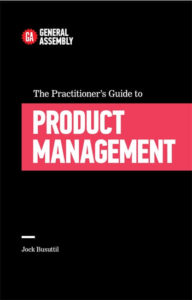
PRODUCTHEAD: Dropping the masks at work
PRODUCTHEAD is a regular newsletter of product management goodness,
curated by Jock Busuttil.
product (mistreated)
tl;dr
We perform better when we bring our emotions to work
Call out toxic workplaces, but also have an exit strategy
An effective team needs: psychological safety, dependability, structure & clarity, meaning, and impact
Treat psychological safety as a key business metric, as important as revenue, cost of sales, or uptime
a favour: please share this with other product people
every PRODUCTHEAD edition is online for you to refer back to
hello
This week’s PRODUCTHEAD may resonate more for some than others. Some recent conversations reminded me how tiring it can be to wear a mask at work. By ‘mask’, I’m referring to the metaphorical façade, not the fabric facewear.
I remember my first job as a product manager in a large organisation, which was also my first in London. It was a stark contrast to the small, familial scale-up I’d been working at in Cambridge for the previous six years. The office was in a majestic cathedral of a building, overlooking the river Thames, between London Bridge and the more famous Tower Bridge.
Not only was I overawed by the office and its location, I was also tremendously insecure about my ability to fulfil this role. My involuntary response was to conjure up a persona I felt would conform to my perception of what a corporate office drone should look like. Such was the separation I felt there needed to be between my personal and work lives that I even introduced myself by a different first name (my parents gave me plenty to choose from). So I was stuck with this entirely unrepresentative work persona.
Gradually it dawned on me that, despite having next to no experience at that point, I still had a better grasp of the fundamentals of product management than the majority of the people I was working with. Everyone else seemed more bothered about doing stuff that presented them in a good light to our volatile group manager, so as to avoid being on the receiving end of one of his hair-trigger tirades.
In retrospect, I didn’t realise at the time why it was so problematic to keep wearing this mask at work. It was exhausting to play the role, and doing so isolated me from my colleagues. While I do believe that a degree of professional distance is valuable as a product manager to safeguard oneself from emotional burnout, what I found myself doing in that job was much more extreme. Wearing the mask I’d created to fit in only served to highlight to me how much I didn’t fit in. 1/10 — would not recommend.
While I think that my masking in that situation was mainly an overreaction on my part, I also believe that many organisations still persist in perpetuating an office culture that prevents psychological safety — that is, allowing people to bring their whole selves to work, without masks, and without fear of rebuke or recrimination for being their whole selves.
Many companies sadly continue to reward extroverts while sidelining intraverts; they actively discourage non-conformity to an arbitrary norm for behaviour or dress code (“you must always wear appropriate business attire” or “you must return to the office to work over continuing to work remotely”); objective suggestions to improve the status quo are interpreted as a direct challenge to the infallibility of corporate leadership.
You may be lucky and have never experienced any of these situations. But for those of you reading this and finding it painfully familiar, please remember: it is not your fault if you feel you don’t fit in. Your colleagues and managers should be open-minded enough to welcome you for who you are, without prejudice. It is also fine if you feel you don’t have the emotional energy to call out a toxic office culture, or to try to change it.
It is not ‘failing’ to vote with your feet and to go work somewhere else that lets you be you.
Speak to you soon,
Jock
what to think about this week
Are you guilty of masking your emotions in the workplace?
Putting on a front while on the job could be affecting your mental health. Here’s some professional advice on how to deal with that emotional labour.
Suppressing your feelings doesn’t make them go away
[Beverley Ann D’Cruz / CPA Canada]
You left your toxic workplace. Why does it feel so hard to move on?
Toxic workplaces are common — and can have profound effects on workers long after they leave.
Fixing a toxic workplace really falls to the people in power
[Anne Branigin / The Lily]
Understand team effectiveness
Following the success of Google’s Project Oxygen research where the People Analytics team studied what makes a great manager, Google researchers applied a similar method to discover the secrets of effective teams at Google. Code-named Project Aristotle – a tribute to Aristotle’s quote, “the whole is greater than the sum of its parts” (as the Google researchers believed employees can do more working together than alone) – the goal was to answer the question: “What makes a team effective at Google?”
Identifying the dynamics of effective teams
[Google re:Work]
Psychological safety in operation teams
When I worked for Google as a Site Reliability Engineer, I was lucky enough to travel around the world with a group called “Team Development.” Our mission was to design and deliver team-building courses to teams who wanted to work better together. Our work was based on research later published as Project Aristotle. It found that the primary indicator of a successful team wasn’t tenure, seniority, or salary levels but psychological safety.
Good at operations = bad at recognizing psychologically unsafe situations
[John P. Looney / ;login: ]
recent posts
The agency trap
How can product management fit into an agency business model when requirements or specifications are often contractually set in stone by the client up-front? Spoiler alert: not easily
[I Manage Products]
Whatever this is, this web3 product manager role is not a product manager
Jason Shah wrote a guest post recently for Lenny Rachitsky’s newsletter, “A Product Manager’s Guide to web3”, which describes how product management differs in web3 companies. He notes that joining a web3 company can be “an opaque process and a risky decision”. I’d add “ethically challenging and morally grey” to that description.
“You keep using that word. I do not think it means what you think it means.”
[I MANAGE PRODUCTS]
Sorting the signal from the noise — a guide to fact-checking
One of the most important, and arguably hardest jobs we have as product managers is to work with our team to sift through information, read between the lines, and verify what is fact and what is merely opinion.
[I MANAGE PRODUCTS]
upcoming talks and events
15th June 2022
Chief Product Officer Summit

We have the crème de la crème of product leadership events’ taking place on June 15, don’t miss out 🙅🏻♀️🙅🏻🙅🏽♂️
The FOMO will be real if you miss out on the amazing knowledge being shared by our renowned lineup of speakers.
Every single presentation gives you the opportunity to get instant feedback on your burning questions – directly from the experts.
Sign up and get ready to level up your product-led insight!
can we help you?
Product People is a product management services company. We can help you through consultancy, training and coaching. Just contact us if you need our help!
Helping people build better products, more successfully, since 2012.
PRODUCTHEAD is a newsletter for product people of all varieties, and is lovingly crafted from charts, charts and more charts.


Leave a Reply